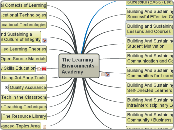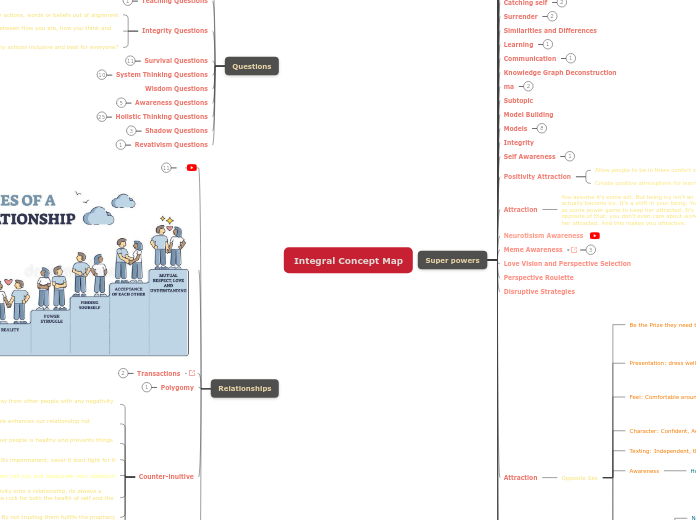The Learning Environments Academy
See the Points Awarded link.
**********************************
Everyone goes through the Introduction.
Each person also picks any 2 of the other modules in the Academy.
There are a series of required homework exercises that must be completed in their practice courses. For help with using the online learning environment to complete these exercises, students can consult the Resource Library. That Library also has advanced resources they can use whenever they need or want to learn more about the online learning environment or to do tasks they have not done before.
Completing 3 modules of the Academy (Introduction plus 2) should be sized require about 15 hours of work. The time to complete the required exercises in the Practice Course will vary depending upon the user's previous experience.
Faculty can return to any other modules in the Academy whenever they want.
While the basic modules in the Academy have no prerequisites, the Advanced Topics do have prerequisites.
We may segment the Practice Exercises so that they are staged for Blended (every course), Hybrid and 100% Online, like our current Completions.
Modules may be added, removed or changed in the future depending upon feedback from the faculty or changes in the learning environment or in college policies.
It would be possible take a Chinese Menu approach, requiring one from column A and one from column B, etc.
Alternatively, we could say that completion of the Academy requires a certain number of points and then weight the modules by assigning points to them. This might be necesary if big differences emerge in the scope or difficulty levels of the modules.
The above approach responds to the "it's all too much" criticism and might increase buy-in by faculty, a little bit. Eliminating required sequences and providing for customer choice also increases or andragogic creds a little bit.
Building And Sustaining Successful Critical Thinking About Teaching
How do I respond to Atherton's critiques of what we've been studying?
Heterodoxy
Building And Sustaining SuccessfulCommunity / Business Partnerships
What needs can we serve in the greater community?
How do I engage the larger community and business orgainzations?
Teacher as Ambassador
Building And Sustaining Successful Intra/Interdisciplinary Learning Programs
Interdisciplinary Programs
Online
Role of Cross-Course Competencies
Set overall outcomes for students (type of person he or she should become)
Seek opportunities to partner across institutions
Seek opportunities to partner across disciplines
Seek opportunities to partner in your discipline
How do I create and sustain....
Interdisciplinary programs?
Intradisciplinary programs?
Teacher as Colleague
Building And Sustaining Successful Self-Directed Learners
Although "Building and Sustaining Successful Communities for Learning" is not a prerequisite, familiarity with that module may be helpful.
Self-Directed Learning
Intervene appropriately
Monitor progress without interfering
Be open to new ideas
Provide expert assistance
Use Problem Based Learning
Set the parameters and expectations
Encourage Exploration and Discovery
Structure Self-Directed Projects
Explain your role to students
How do I enable and support self-directed learners?
Problem based learning
Exploratory learning
Clear expectations
Competencies
Our focus here is Stage 4 Teacher as Consultant
The Advanced Topics Area
Prerequisite:
Successful completion of the Academy
Certain Advanced Topics may have other, more specific prerequisites.
The Resource Library
College Processes and Procedures
Media Conversion Request Forms
Media Server Rules
Project Grant Proposal Forms
Publisher Content Request Forms
Learning Object repository Forms
Face to Face Learning Environment Resources
Online Learning Environment Resources
Required Exercises
100% Onlline
See Prototype course, end of TOC
Resources for Building And Sustaining Successful Learning Environments
Innovative Teaching Techniques
eTech in the Classroom
Quality Assurance
Get feedback from students
End of course feedback survey
Lesson ratings and feedback
Discussion ratings
Consult your eMentor
Analyze a course
Analyze a course in terms ofthe rubrics provided by the collegethe applicable stage(s) of the SSDL modelthe community building and maintaining aspects of the courseusing Maslow's hierarchy of needs?its coverage of the VARK learning stylesits coverage of the 5 brain-based learning systemsits accessibilityits accommodation of multiple intelligencesalignment of assessments to objectives
Using 3rd Party Tools
21st Century Skills Education
21st Century Skills,
Education & Competitiveness P. 10
http://www.p21.org/documents/21st_century_skills_education_and_competitiveness_guide.pdf
Beyond the assessment of reading, mathematics and science, the United States does not assess other essential
skills that are in demand in the 21st century. All Americans, not just an elite few, need 21st century skills that
will increase their marketability, employability and readiness for citizenship, such as:
• Thinking critically and making judgments about the barrage of information that comes their way every
day—on the Web, in the media, in homes, workplaces and everywhere else. Critical thinking empowers
Americans to assess the credibility, accuracy and value of information, analyze and evaluate information, make
reasoned decisions and take purposeful action.
• Solving complex, multidisciplinary, open-ended problems that all workers, in every kind of workplace,
encounter routinely. The challenges workers face don’t come in a multiple-choice format and typically don’t
have a single right answer. Nor can they be neatly categorized as “math problems,” for example, or passed
off to someone at a higher pay grade. Businesses expect employees at all levels to identify problems, think
through solutions and alternatives, and explore new options if their approaches don’t pan out. Often, this
work involves groups of people with different knowledge and skills who, collectively, add value to their
organizations.
• Creativity and entrepreneurial thinking—a skill set highly associated with job creation (Pink 2005,
Robinson 2006, Sternberg 1996). Many of the fastest-growing jobs and emerging industries rely on
workers’ creative capacity—the ability to think unconventionally, question the herd, imagine new scenarios
and produce astonishing work. Likewise, Americans can create jobs for themselves and others with an
entrepreneurial mindset—the ability to recognize and act on opportunities and the willingness to embrace
risk and responsibility, for example.
• Communicating and collaborating with teams of people across cultural, geographic and language
boundaries—a necessity in diverse and multinational workplaces and communities. Mutually beneficial
relationships are a central undercurrent to accomplishments in businesses—and it’s not only top managers
who represent companies anymore. All Americans must be skilled at interacting competently and respectfully
with others.
• Making innovative use of knowledge, information and opportunities to create new services,
processes and products. The global marketplace rewards organizations that rapidly and routinely find better
ways of doing things. Companies want workers who can contribute in this environment.
• Taking charge of financial, health and civic responsibilities and making wise choices. From deciding
how to invest their savings to choosing a health care plan, Americans need more specialized skills—simply
because the options are increasingly complex and the consequences of poor decisions could be dire.
Taking charge of finacial, health and civic responsibilties and making wise choices.
Making innovative use of knowledge and opportunities to create new services, processes and products.
Communicating and collaborating with teams of people across geographic and language boundaries.
Creative and entrepeneural thinking.
Solving complex, multidisciplinary, open-ended problems that all workers, in every kind of workplace encounter routinely.
Thinking critically and making judgments about the barrage of infromation that comes their way every day.
Using Free / Open Source Materials
Building And Sustaining Successful Communities for Learning
Although "Building and Sustaining Successful Communication and Collaboration" is not a prerequisite, familiarity with that module may be helpful.
Building community
Apply Maslow's hierarchy
Apply student feedback
Maintain scholarly civility
Promote displays of diversity
Accept displays of multiple intelligences
Build safe environments for learning
How to develop / integrate concepts of community and fostering collaboration into objectives.
How do I nurture and sustain learning communities?
Collaborative assignments
Our focus here is Stage 3.5 Teacher as Community Organizer
Applied Learning Theories
Building And Sustaining a Successful Culture of Integrity
Using Educational Technologies
Building And Sustaining Successful Communication and Collaboraration
Although "Building and Sustaining Successful Effective Content" is not a prerequisite, familiarity with that module may be helpful.
Communicating and Collaborating
The concept of preseence
Professor Avatar
Engineering your online persona
Understand uses of different communication channels
Distinguish carefully between cheating and collaborating
Apply social learning theory
Build safe environments
Create opportunities for collaboration
Partner with students
Use Groups
Evaluate if students are ready for cooperative learning
How do I get my students communicating and collaborating?
Course Mail
Elluminate
Chat?
Vocabulary of Discussion BoardsPostComposeReplyThreadFlamePinFilterFlameForumTopic
Our focus here is Stage 3 Teacher as Collaborator
Building And Sustaining Successful Student Motivation
Preassessments
Icebreaker activities
Discussion
Most of our students are adults. In this course, we based our guidelines for coaching on Knowles's principles of andragogy. Andragogy studies how adults learn, as contrasted with pedagogy which studies how children learn. How to you respond to the proposition that treating your students as adults should increase student success?
A perennial problem in online classes is students who are not ready for online learning. They may not have the technology needed, the technical skills or the time management skills (among other lacks). How should colleges address this problem? What do you think of our Readiness Survey?
What media do you allow students to use when submiting projects? Can they get credit for video, audio, graphics files, for example? Why or why not?
Non-traditional contexts
On ground
Assessing student readiness
Where on the competency matrix?
Emotional readiness
Existing knowledge
Motivating
Evaluate and share
Evaluate if students know enough to go forward, Share why you are excited by the subject, Apply andragogy, act as coach, stimulate positive emotions, provide clear guidance, give positive feedback, encourage good work, praise good interaction with other students, stress academic integrity, using scaffolding and modeling, build on brain-based learning systems, listen to student feedback
Invoke the emotional learning system.
Intrinsic vs. Extrinsic Motivation
Brain-based learning systems
Using your lesson outline or your lesson chart, label each part of the lesson as to the Theater of the Mind in which it belongs. If there are missing theaters, write suggestions for ways to include them in an online course.
Modes of Learning
Given one of the objectives you have already written, write a paragraph explaining how you could use Modes of Learning to teach that objective, progressing from short term memory to integrating the learning into long term mental schemas.
You have advanced education in a subject other than education. Reflect on that. Have you achieved a state of Reflective Competence?
For each of the online learning system tools listed below, place your self in the Competency Matrix.
How do I ....
Keep my students motivated?
Reveal my motivations
Share enthusiasm
Get my students motivated?
Use etech
Treat studennts as adults.
Engage emotions
Our focus here is Stage 2 Teacher as Motivator
Building and Sustaining SuccessfulLessons and Courses
Sustanining student success
See "How do I create media?"
Use of Question banks
Use of online Quizzes
Use of a Dropbox
Assist with LMS usage
Use of automated quizzes
Use of Glossary
Use of FAQ
Apply Andragogy
Andragogy makes the following assumptions about the design of learning:
(1) Adults need to know why they need to learn something
(2) Adults need to learn experientially,
(3) Adults approach learning as problem-solving, and
(4) Adults learn best when the topic is of immediate value.
Coach adult learnersApply principles of androgogy?Persuade, Influence, etc.
Modules and Lessons vs Other Structures
Control vs Any time access
Customization vs. Consistency
Sequencing vs Not sequencing materials
How to create ideal student outcomes
Principles for creating structured and unstructured lessons.
Know what the ideal student is.
How to create engaging / relevant course content / activities that are congruent with outomes.
How to creatre activities to achieve / support learning objectives.
How to make adjustments to ongoing / ative course objetives.
How to write learning objectives
Andragogy (explain why)
For two objectives, write a brief summary explaining to your adult learners why they should master each objective.
Performance Objectives
OR Post it in the Discussion Board
For a course with which you are familiar, analyze four of its stated objectives in terms of the the ABCD model. Record your analysis on the following table and post it in your practice course. Post it in the discussion board.
Bloom's Taxonomy
For your subject area, write or find and copy one objective for each of the levels in Bloom's taxonomy using a suggested verb from the relevant list
How do I structure effective lessons and courses?
Course Rubrics
Assessments
Content
Focus on the learner
Organizing
Scaffolding
Coaching
Our focus here is Stage 1 Teacher as Coach
Building And Sustaining Successful Effective Content
Course management techniques
Relevant college policies and expectations
Effective Content
In other contexts
Online
On the ground
Maintaining content over time
Update and refresh content
Publish your preferred means of contact
Publish your office hours
Stress academic integrity
Provide accommodation statement
State the learning objectives
Publishing syllabus online
Engaging the Senses and the Emotions
21st Century Students
Writing for electronic media
Presentation pointers
Optimizing media for web delivery
Accessible
Multi-sensory
Inverted Pyramid
Varying media for learning styles
VARK Learning Styles
Content is not enough, necessary but not sufficient
Objectives
Tell them
What you told them
What you want to tell them
What your are going to tell them
Kolb's Learning Styles and Lesson Structure
Given one of the objectives you have already written, create a chart illustrating how you would teach that objective going round the circle.Is your chart more appropriate for onground or online training? How would you change it for use in the other environment?
Given one of the objectives you have already written, outline a lesson that uses multiple senses and student activities.a. Label each part of the lesson with the sense or senses invoked.b. Label each part of the lesson with the appropriate learning style from the VARK list.
How do I produce effective content?
Relevant tools
HTML Editor
Learning Object Repository
Copy course components
Manage content
Manage files
Our focus here is Stage 0 Teaching as Presenter
Orientation to Building and SustainingSucessful (BASS) Learning Environments
Challenges Of Online Learning
Using the online learning environment
Assessing Learning
Modules and Lessons
Using Social Media
Managing Email
Managing Discussions
Creating Personas / Avatars / Presence
The persona of the instrutor is the instructor that exists in the mind of the student in an online course. This instructior persona is built up based on the introductions, texts, documents, media, feedback, assessments, interaction, interventions, and other elemnets presented online by the actual instructor. This persona may be like or unlike the actual instructor if encounterd face-to-face.
Whether the instructor consciously crafts an online persona or not, the instructor needs to be where that such a persona is always created in the students's minds.
In order to "just be yourself" online, you must make choices that let your self be revealed online.
Building Community
Educational Technologies Overview
Learning Theories Overview
Brain-Based Learning Strategies
3 Networks
5 Theaters
Andragogical Strategies
Technology Mediated Instructional Procedures
Learner-centered Approaches
Teacher-Centered Approaches
Cognitive Learning System
VARK
Kinesthetic
Reading (Visual: Verbal)
Auditory: Verbal
Visual: Non-Verbal
Competency Matrix
Reflective Comptence
Uncoscious Competence
Conscious Competence
Consciouis Incompetence
Unconcious Incompetence
Modified Self-Directed Learning Model
Teacher as Critical Thinker regarding Teaching
Teacher as Agent of Academic Integrity
Teacher as Ambassador (to larger community)
Teacher as Colleague (of other teachers)
Teach as Consultant
Teach as Community Organizer
Teacher as Collaborator
Teacher as Motivator
Teacher as Coach
Teacher as Authority
Continuum of Instructor / Student Control
The Points System
Tool Resource Library
Building and Maintaining Learning Environments
How do I get through this Academy?
Educational Technologies
Tools Of Online Learning
Other Online Tools
Twitter
Facebook
Email
Second Life
LMS Tools
Course Shells
Re-use Tools
Export
Import
Copy
Classlist
Course Home Page
Hompages
Widgets
NavBar
Groups
Course Email
Dropboxes
Discussions
Receivers
eBook Readers
MP3 Players
Smart phones
Netbooks
Computers
Screen Capture
Presentaion Tools
Document Cameras
Chalkboards
Media Delivery
Media Studios
Media Servers
Pod Casts
ITunes U
Smartboards
Non-Traditional Contexts of Learning
Life-Long
M Learning
eLluminate
Pod casts
iTunes U
Totally Online
Hybrid
Blended









